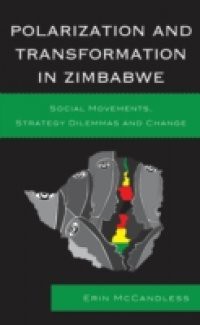Social movements and civic organizations often face profound strategy dilemmas that can hamper their effectiveness and prevent them from contributing to transformative change and peace. In Zimbabwe two particular dilemmas have fed into and fueled destructive processes of political polarization-dividing society, leadership, and decision-makers well beyond its borders. As conceptualized in this study, the first is whether to prioritize political or economic rights in efforts to bring about nation-wide transformative change (rights or redistribution). The second is whether and how to work with government and/or donors given their political, economic, and social agendas (participation or resistance). This book investigates these issues through two social movement organizations-the National Constitutional Assembly and the Zimbabwe National War Veterans Association-and the movements they led to achieve constitutional change and radical land redistribution. Through in-depth case study analysis and peace and conflict impact assessment spanning the years 1997-2010, lessons are drawn for activists, practitioners, policy-makers, and scholars interested in depolarizing concepts underpinning polarizing discourses, transcending strategy dilemmas, and understanding how social action can better contribute to transformative change and peace.

